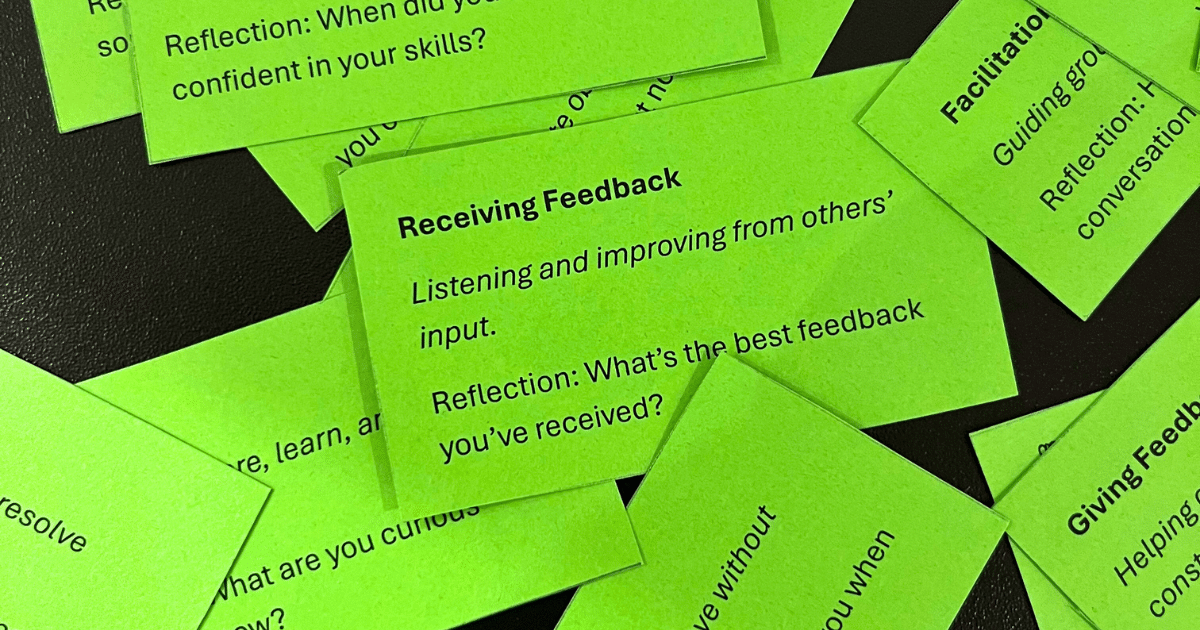In a world where artificial intelligence is rapidly reshaping the way we work and live, learning how to learn is becoming the most valuable human skill for the future. This “meta-skill”, speakers agreed, is what will help us navigate a fast-changing world.
That was the central conclusion of the public discussion hosted by KMOP at Mundo Madou in Brussels on 25 September, under the title “Navigating a fast-changing world: The role of meta-skills”. The event brought together educators, policymakers and vocational training professionals to explore how meta-skills can prepare people to adapt, learn and thrive, enabling them to become resilient problem-solvers.
Suada Ismailaja, Project Manager at the KMOP Policy Centre, opened the conference with welcoming remarks. Pauline Boivin, Project Manager at the Lifelong Learning Platform, delivered the keynote, championing project-based learning as an approach that cultivates multiple meta-skills while transforming the learning experience itself. Developing one’s own projects, she noted, gives individuals ownership of their ideas — and with ownership comes both pleasure in learning and deeper engagement.
Speakers emphasised also that the future of education lies in nurturing the human side of learning rather than focusing solely on technical ability. As Paolo Nardi, Director of the European Forum of Technical and Vocational Education and Training, put it:
Companies do not need technicians, but adult human beings.
His point resonated throughout the discussions, where ethics, values, critical thinking, self-awareness and “learning to learn” emerged as the meta-skills most needed to face uncertainty. Nardi further underlined the importance of connecting learning with real life: hands-on challenges, he argued, offer an “incredible highway” to adaptability, resilience and reflection.
In today’s context, where digitalisation and AI are transforming work and society, participants agreed that these human-centred skills are not optional but essential. Far from being overshadowed by technological progress, meta-skills are what will keep people relevant, creative and resilient. The EU, it was noted, provides a space for participation that makes it possible to integrate such competences across education and training systems, reinforcing the idea that developing meta-skills is a European as well as a national priority.
During the event, Sirje Hassinen, coordinator of the META-COIN project and expert in international affairs at the Finnish organisation Omnia, pointed out that competences are becoming increasingly complex, and that the pace of technological change demands that learning itself evolves. One of META-COIN’s key findings, she said, was the importance of equipping learners not just with professional expertise but with adaptive, reflective and future-oriented capacities, echoing the wider call of the conference to embed meta-competences more systematically into curricula and training.
The event concluded with a hands-on group exercise using the Meta-Skills Marketplace Cards, allowing participants to translate theory into practice and experience how reflective and interactive tools can support both personal and professional growth. A networking session followed, offering space to exchange ideas and build connections. The day closed with a shared recognition: in a world of accelerating change, meta-skills remain the human foundation for successfully navigating and shaping the future.
Discover more about KMOP’s initiative “META-COIN”.
Are you interested in attending our next event in Brussels? Subscribe now to our newsletter.
For further information about the event and our activities in Brussels, contact us at [email protected].




